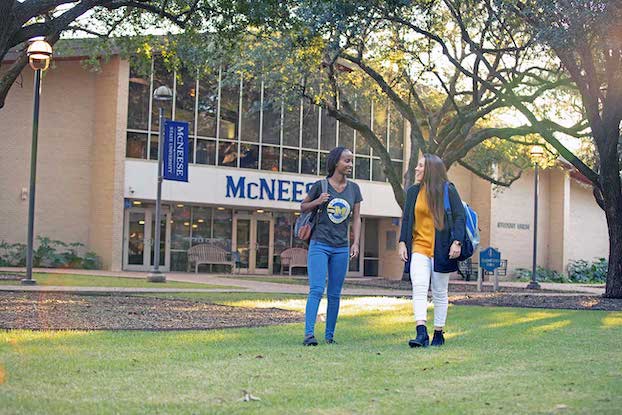Catholic Charities outreach coordinator: The homeless should be treated with respect
Published 9:26 am Saturday, November 4, 2023

- (Metro Creative Services)
Not all homeless individuals are mentally ill or drug addicted. Sometimes – especially in today’s economy – a major vehicle repair, job loss due to a company downsize, injury or illness – can make the difference between going to bed one night in a safely sheltered environment and waking up to learn how to live without housing, a basic human need.
“The homeless are human beings who should be treated with the same respect you would want to receive, no matter their situation” said a Catholic Charities outreach coordinator. Instead, they are often stigmatized as lazy, “You know there are homeless people who work, right?” she asked. Statistics show that 45 percent of the homeless worked in the last month.
The Catholic Charities worker believes a shift in public perception of the homeless is not only “right,” but that it will also result in a tangible outcome, resources. To demonstrate that every homeless person’s story is different, she introduced a few of her clients, with their consent.
Jane Smith, not her real name, and her husband were living in a FEMA trailer after Hurricanes Laura and Delta. When they found out rent on the trailer would go to $900 a month, they started looking for something less expensive. In June 2022, they found an apartment on Fifth Avenue. Her husband had a human resources background and had been in the military, she said. He received a social security check and worked at Walmart until he fell from his bicycle and injured himself. Those injuries required surgery.
The Smiths received money from Catholic Charities to help with utilities and food while he was out of work. When they couldn’t make their rent, they received money to live in transitional housing. That rent money came from a grant. When grant money ran out, the couple was evicted. That was in February 2023.
The Smiths bought a wagon, a couple of folding chairs, an ice chest and found a tarp, creating a makeshift shelter behind the hotel. (One of the hotel guests invited them to stay with her during a lightning storm.) Someone gave them a spacious tent and cots.
In May, it became apparent that her husband would require a second surgery. It could not be scheduled until January. His pain grew increasingly worse and he died homeless on June 17 this year.
“I told him I loved him everyday,” she said. “You never know when things like that can happen.”
Many homeless individuals die from treatable conditions. However, the number of these deaths, like the number of homeless, is hard to track. The Catholic Charities outreach coordinator has one client who has had three strokes. One died from cancer and another can’t receive the treatment she needs because it is not safe for her to receive chemo and go back to the streets.
“Through the pandemic, many households have continued to struggle with housing insecurity. Rising rents and persistent inflation increase the risk for people becoming homeless and serve as barriers to people who are trying to exit homelessness, according to the National Alliance to End Homelessness. In Southwest Louisiana, the hurricanes and other weather disasters compounded the struggle, damaged and destroyed housing.
There was not enough low-income and affordable housing here before the hurricanes. Now there is even less. In an effort to clean up after the hurricanes, structures deemed unsafe for living have been condemned. Some were, and are, inhabited by individuals who know they shouldn’t be there. But that is not always the case. These dwellings are also home to second or third generations from the no longer living owner. When the house isn’t repaired to the latest standards, or an agreement reached among all the heirs regarding the future of the property, the result can lead to nowhere to live.
A 58-year-old set out to repair the floors of his house after the hurricanes, and ran out of money. After a tree fell through his roof, he continued to live in the house until the City of Jennings condemned the property because of the mold. For two months, he lived in a tent on the property. Now he’s housed.
When the Catholic Charities worker connects with an individual who meets the criteria for homelessness, she enters information in theHomeless Management Information System to match the client with a housing program for which they may qualifywhen and if it becomes available. The coordinator also connects the client with wrap-around services.
During her introductions to clients, the coordinator checked a couple of places before she finally located a homeless man and his pet, and spent 15 minutes visiting with him as they stood in the drizzling rain.
“I’ve heard people criticize the homeless for having pets when they can’t take care of themselves,” she said, “but I understand it. It’s that unconditional love.”
Another client,Gene Young, not his real name, has clear, piercing eyes, well-groomed hair and beard. He is articulate, intelligent and homeless. He is also autistic, has cerebral palsy and asthma.
Young avoided Stevens for a long time before she gained his trust. This is common in her job. Finally, she was able to help him receive some care – and get his disability check. In the meantime, she fixed him up with blankets, food and a few clothing items. Now that he is in the system and she knows where and how he moves from place to place, she is better able to check on him periodically.
This young man wants the public to know his story, and what he’s learned from a life on the streets. He doesnt think being homeless means he should be treated as a criminal. “Bad things happen to good people,” he said.
One way to help him and others like him, doesn’t cost a thing and can be as simple as realizing each person’s story is different. Drug users and individuals with untreated mental health disease might experience homelessness, but so do many, many others.
For those who want to do more, Catholic Charities in Lake Charles accepts cleaning supplies for the homeless who get the chance to set up housekeeping. These individuals also receive free financial counseling that moves them to sustainability. New socks and underwear can also be donated. Monetary donations, marked for homeless outreach, may be mailed to Catholic Charities, 1225 Second St., Lake Charles For more information, contact Catholic Charities of Southwest Louisiana at 337-439-7436.





